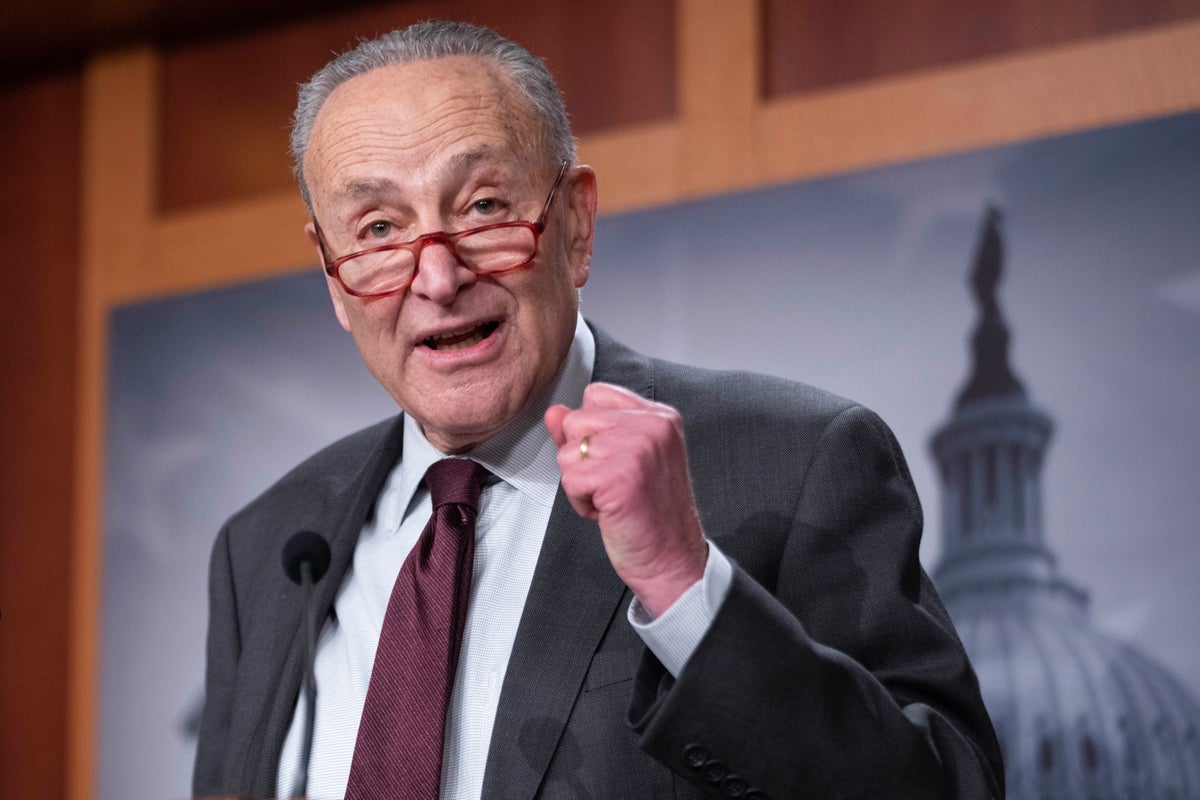
Democrats will claim the Senate majority again on Tuesday, but much of the chamber’s focus is on the top Republican as Mitch McConnell becomes the longest serving Senate leader in history.
McConnell, 80, will surpass Montana Sen. Mike Mansfield’s record of 16 years as party leader when the Senate convenes midday for the new Congress. While the Kentucky Republican has acknowledged he would prefer his own party to be taking charge — “the majority is better,” McConnell frequently says — he’s celebrating his own personal milestone with a speech looking back at Senate leaders and their different styles over the decades.
And Senate Majority Leader Chuck Schumer, D-N.Y., cements a legacy of his own after winning a second term as leader. Democrats will go into the new Congress with a 51-49 majority, with newly Independent Sen. Kyrsten Sinema receiving her committee assignments from Democrats.
The celebratory Senate proceedings will be in marked contrast to a chaotic start for the new Republican House majority across the Capitol, where Republican Leader Kevin McCarthy is fighting to become speaker amid contentious internal strife in his own party. McConnell, his party's leader since 2007, easily dismissed a similar challenge from within after the November midterms, and, like Schumer, begins the new year with strong support from his caucus.
In praising the tenure of Mansfield, a Democrat who led his party in the Senate after Democrat Lyndon Johnson resigned to become vice president in 1961 and served until 1977, the ever-restrained McConnell will hint at his own long-term strategy — a contrast to the bombast and chaos across the Capitol.
“There’ve been leaders who rose to the job through lower-key, behind-the-scenes styles; who preferred to focus on serving their colleagues rather than dominating them,” McConnell will say, according to an excerpt of the speech released Tuesday morning, and that “is how Senator Michael Joseph Mansfield of Montana became the longest-serving Senate Leader in American history until this morning.”
Like President Joe Biden, both Schumer and McConnell will open the year pledging to work across the aisle — and all three will have to find ways to work with the new House majority to keep government running. McConnell will make a rare appearance with Biden in his home state of Kentucky later this week to highlight nearly $1 trillion in infrastructure spending that lawmakers approved on a bipartisan basis in 2021.
Also Tuesday, the Senate will swear in seven new members, five Republicans and two Democrats. John Fetterman, a Pennsylvania Democrat, is the only one of those new members who flipped party control of his seat, having won an open seat held by retiring Republican Sen. Pat Toomey. The other six new senators are all replacing members of the same party.
New Republican senators are Ted Budd of North Carolina, Katie Britt of Alabama, Markwayne Mullin of Oklahoma, Eric Schmitt of Missouri and J.D. Vance of Ohio.
Vermont’s Peter Welch is the only other new Democrat, replacing Sen. Patrick Leahy, who is retiring after almost five decades in the seat.
Washington Sen. Patty Murray will make her own history, replacing Leahy as the first woman Senate pro tempore. That position is held by the senior-most member of the majority party and is third in line to the presidency.







